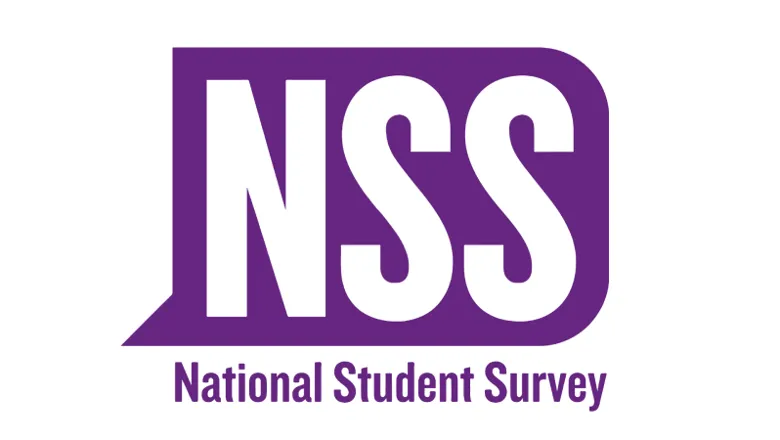It’s always nice for us teachers to get good marks from the students. This year’s graduating students all joined us before COVID and had a university experience rather different to the one they expected. Both staff and students faced some challenges, with many teaching staff having going back to school themselves to learn new ways of teaching. The high satisfaction scores are the result of the dedication our staff showed to make this work – and the willingness of our students to engage in, and help us to develop and improve, approaches to learning that were new to so many of us. Undergraduate teaching is a huge team effort, with teaching contributions from the core academic team assisted by staff across the IoPPN and wider college. But student satisfaction also needs a lot of work that they don’t see happening from professional services colleagues in technology, communications, timetabling, assessments and all the campus services including cleaning, catering and security. These positive results are a vote of thanks to all who make the institution what it is
Professor Michael Aitken-Deakin – Deputy Head of Department & Director of Undergraduate Psychology Department of Psychology
27 July 2022
IoPPN BSc Psychology excels in National Student Survey 2022
The undergraduate courses at the IoPPN (BSc Psychology and BSc Psychology with Professional Placement) were ranked fourth highest for student satisfaction for psychology courses in the Russell Group, and second highest for student satisfaction in London universities. Overall, student satisfaction increased from 81% in 2021 to 88% in 2022; BSc Psychology with Professional Placement had a 91% student satisfaction rate.

The results of the 2022 National Student Survey (NSS) and Post Graduate Taught Experience Survey (PTES) results have been published, revealing high levels of satisfaction among undergraduate and postgraduate taught (PGT) students at the Institute of Psychiatry, Psychology & Neuroscience (IoPPN).
The undergraduate courses at the IoPPN (BSc Psychology and BSc Psychology with Professional Placement) were ranked fourth highest for student satisfaction for psychology courses in the Russell Group, and second highest for student satisfaction in London universities. Overall, student satisfaction increased from 81% in 2021 to 88% in 2022; BSc Psychology with Professional Placement had a 91% student satisfaction rate. The IoPPN’s psychology undergraduate courses also scored within the top five Russell Group universities on ‘learning opportunities’, ‘learning resources’, ‘teaching’, ‘student voice’ and ‘assessment and feedback’.
Accredited by the British Psychological Society (BPS) in 2015, the undergraduate courses draw upon the established expertise of the IoPPN, the NHS and a wide range of world-leading researchers and practitioners across King’s, from neuroscience to the social sciences. The courses involve students applying their knowledge in real-life contemporary scenarios, such as racism in the UK post-Brexit or knife crime in London. This helps students apply psychological science to a variety of current social challenges. The course offers clinical placements through partnership with the South London & Maudsley NHS Trust, which offers the widest range of mental health services in the UK, the possibility to study abroad as well as fantastic graduate career opportunities.
Studying Psychology at King's means joining Europe's largest centre for research and education in this field. King’s College London is ranked 2nd in the world for psychology and psychiatry (US News Best Global Universities) and is one of the world’s leading centres for research and education in Neuroscience. With student mental health and well-being at the centre of the strategic vision, King’s remains an exceptional institution committed to improving the student experience and continues to work towards making a positive impact for future King’s students. Given the challenges posed by Covid-19 on the student experience it is reassuring to see improvements in most areas, taking us back to our high pre-pandemic levels or higher.
The PTES results revealed that 85% of PGT students were satisfied with the resources and services provided at the IoPPN and over three quarters of students were satisfied with the teaching and learning provided, their dissertation or major project, and the overall quality of their course. High PGT student satisfaction was reported within individual departments at the IoPPN. Over 90% of PGT students reported satisfaction with the quality of their course in the Addictions Department (92%) and Department of Child and Adolescent Psychiatry (92%). Over 85% of PGT students were satisfied with their course in the Department of Forensic & Neurodevelopmental Sciences (88%), Biostatistics and Health Informatics (86%), and Health Services & Population Research (85%)
‘Our PTES and NSS results this year are testament to the huge amount of effort that staff – both academic and professional services – continue to make towards education in the IoPPN, and I am very grateful to them all. There are always lessons we can learn from student feedback, and these surveys play an important part in that, but as we come to the end of another complicated academic year, we can be rightly proud of what we have achieved as we wish our graduating students all the best in the next stage of their careers.
Professor Juliet Foster, Dean of Education, Institute of Psychiatry, Psychology & Neuroscience
The National Student Survey (NSS) is an annual survey open to all final year undergraduates across the UK. It is commissioned but the Office for Students (OfS) on behalf of the UK funding and regulatory bodies and is conducted by an independent body, Ipsos MORI. The Postgraduate Taught Experience Survey (PTES) is the only national survey to gather taught postgraduate students' opinions about their experience at university and college, run by the Higher Education Academy. FAQs on the course can be found here.


